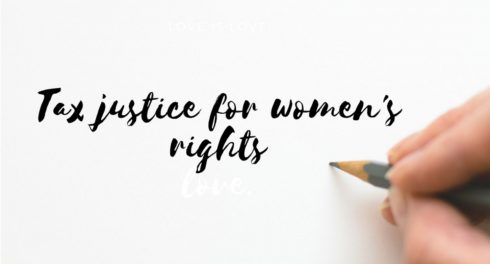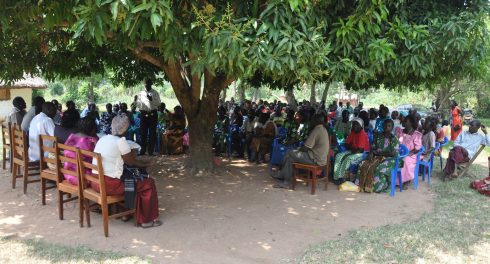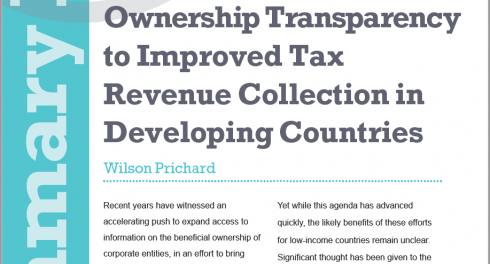Zombies stumbling into digital dystopia

Photo by Jonathan Nackstrand, AFP via Getty Images
At TAI we’ve been noticing a growing push to bring digital and data rights under a broader human rights frame. UN rapporteur on extreme poverty and human rights, Philip Alston, highlights the need with a scathing new report that takes on digital id and welfare schemes that are reversing the “traditional notion that the state should be accountable to the individual” and risk being “Trojan Horses for neoliberal hostility towards social protection and regulation.”
Speaking of unregulated spaces, you may think you have nothing to hide, but Clare Garvie thinks we should all be worried about the prominent use of facial recognition technology. In search of better protection from social messaging platforms, over 100 civil society organizations are calling on Facebook to implement end to end encryption across its platforms [Whatsapp, Facebook, and Instagram]. Of course, that won’t help if the government shuts down Internet access full stop. As internet cutoffs spread across Africa, Quartz’s Abdi Latif Dahir laments African governments’ “futile” attempts to shut down social media and restrict internet access.
Facebook is making changes that limits access to data on political ad targeting. That will likely only further infuriate Facebook co-founder Chris Hughes who has been calling for a break-up of the social-media giant fearing “unilateral control over speech.” Hughes is putting his money where his mouth is, joining TAI members, Open Society Foundations and Ford Foundation, committing $10 million to an “anti-monopoly fund.”
Ford Foundation’s Farai Chideya says now is the time for the media to step up to save our democracy while Sarah Chamness Long is glad of new attention to access to justice as an open government issue.
Don’t mess with my messaging
Policymakers were reminded of the perils of tax decisions this past week. While protests spilled into the streets in Chile and Ecuador around eliminating subsidies, the people of the Lebanon again took to the streets in part of a proposed tax on WhatsApp. Perhaps they should put more effort into tools to explain tax implications – we had fun playing this week with Gabriel Zucman’s US focused interactive tax site where you can create your own tax plan and visualize effects of proposals offered by candidates.
Meanwhile, repercussions of the OECD digital tax plan continue to rumble on. Adrian Croft lays out how the OECD proposal should help pull back some of the estimated $240 billion that goes unpaid yearly but not all countries are waiting on a multilateral solution. Italy is the latest unilateral actor, introducing a digital tax in its draft budget for 2020. Researchers at International Center for Tax and Development (ICTD) among those fearing new rules leave developing countries at risk of being left behind in global tax reform.
Getting to the principles of corporate behaviors, George Turner admonishes pundits for spreading a myth that tax avoidance is all perfectly legal. Meanwhile, the Panama Papers and similar scandals continue to have ripple effects – a welcome development this past week as European lawmakers have agreed to create a permanent subcommittee to investigate financial crimes, including money-laundering, tax avoidance and tax evasion.
Finally on the fiscal theme, TAI sat in on several debt-related sessions at the IMF/World Bank Annual Meetings last week, including one specifically pushing for debt transparency chaired by the World Bank President with lots of references to the Institute of International Finance principles. ONE Campaign’s Fiona Robertson writes that Africa’s debt must produce a return for the citizens that will be burdened with paying it all off.
LONG READ
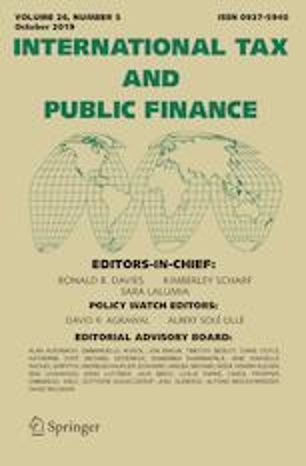 Estimating the scale of profit shifting and tax revenue losses related to foreign direct investment
Estimating the scale of profit shifting and tax revenue losses related to foreign direct investment
Miroslav Palanský and Petr Janský exposed how multinationals continue to avoid paying hundreds of billions of dollars in tax and how to stop it. Their research covers 79 countries.
Data hangover?
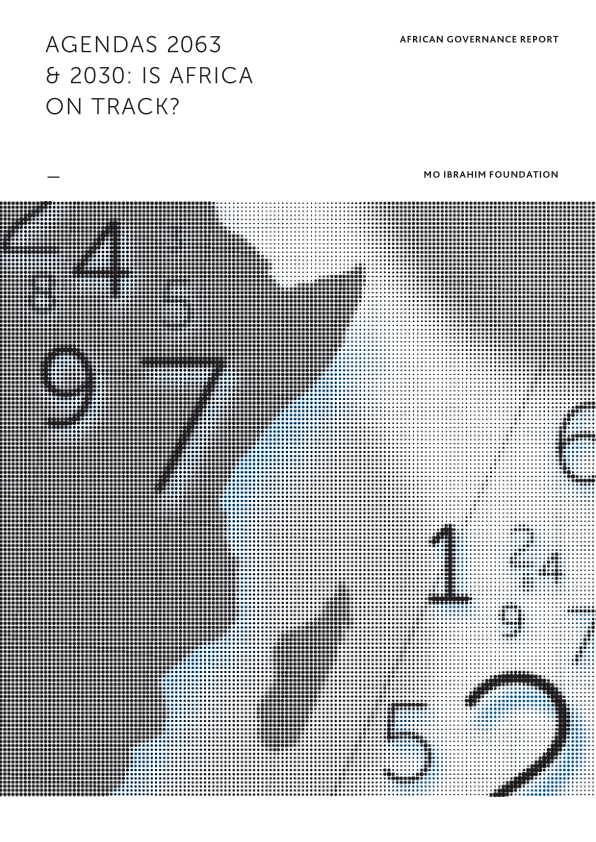
Mo Ibrahim Foundation just published its biannual governance report to track Africa’s progress on achieving the SDGs 2030 and the African Union’s Agenda 2063. But, Yomi Kazeem argues it’s hard to keep track on progress until African government fix their problematic relationship with data production. Even when data is made available, not all is “usuable” or “authentic” – a new paper highlights the risk of sharing, linking, and re-using government administrative data. There can certainly be fatigue over sustaining data sharing. Olivier Thereaux hears of an ”open data hangover” from those shaping the French data landscape.
Earlier this month, we reported much talk of the role of civil society organizations as a legitimate development partner in achieving the SDGs. In perhaps one sign of progress in this area, the UN Food and Agriculture Organization Director-General, Qu Dongyu meets with civil society and indigenous leaders to discuss progress towards Zero Hunger target. More advocacy on this as Sohrab Razzaghi and Masana Ndinga-Kanga, of Volunteer Activists Institute and CIVICUS respectively, call for a more vibrant civil society in Iran.
Self-scrutiny warranted
A recent poll by Alliance Magazine revealed that 84 percent of its readers believe there is a gender pay gap within the philanthropic sector (one can imagine that extends to the groups foundations fund). Not that racial equity is likely to offer better statistics. Ben Hecht offers 3 steps that foundations can take.
In general, all is not well in the development space. Amid the fallout of abuse allegations at MercyCorps, Bridget Geraghty offers some recommendations. A good time to listen to Carrie Hessler-Radelet of Project Concern International lay out some preventative steps organizations might consider re harassment, abuse, and assault within the development work.
Curious about what’s going on with civil society and philanthropy in India? Check out this interview Ingrid Srinath, who runs the Centre for Social Impact and Philanthropy at Ashoka University in Delhi.
Considering funding scholarships? Candid.org has collated data and resources on scholarship grantmaking.
Effort badge
At their Board meeting in Ethiopia this past week, the Extractive Industries Transparency Initiative recognized that the Democratic Republic of Congo has made meaningful progress in implementation. One common lament of EITI reports is that they rarely resonate with national publics, so intrigued to read Natural Resource Governance Institute’s briefing on the role of social media in fostering debates about Nigeria’s oil sector.
Still on corruption, Johannes Tonn of Global Integrity tells us how learning and adaptation matter when it comes to doing anti-corruption work. Pair with the Anti-Corruption Evidence’s article on pairing field experimental and ethnographic methods to study anti-corruption and this resource on advocacy evaluation and you may get more lasting result when it comes to designing interventions to curb corrupt practices.
Talking of experiments, congratulations to Esther Duflo, Abhijit Banerjee, and Michael Kremer for the economics Nobel Prize. Not that all were happy (particularly not political scientists and those in the governance space.) Thanks to Duncan Green for summarizing years of debate pushing back on randomized control trials as magic bullets.
One percenter problems
Finally, a governance solution for the one per centers. It seems billionaires, such as Bill Koch have been subject to wine frauds (even featured in a documentary). In fact, as Oliver Oram tells us, “Transparency and authentication of the supply chain has long been an issue in the wine industry.” Well, here comes blockchain to the provenance rescue. Seems a similar platform already exists for aged whiskies. We can all sleep better now.
ESSENTIAL LISTENING
The Big Stuck and Capability for Policy Implementation
The Building State Capability (BSC) program at Harvard’s Center for International Development (CID) researches strategies and tactics to build the capability of public organizations to implement policies and programs.
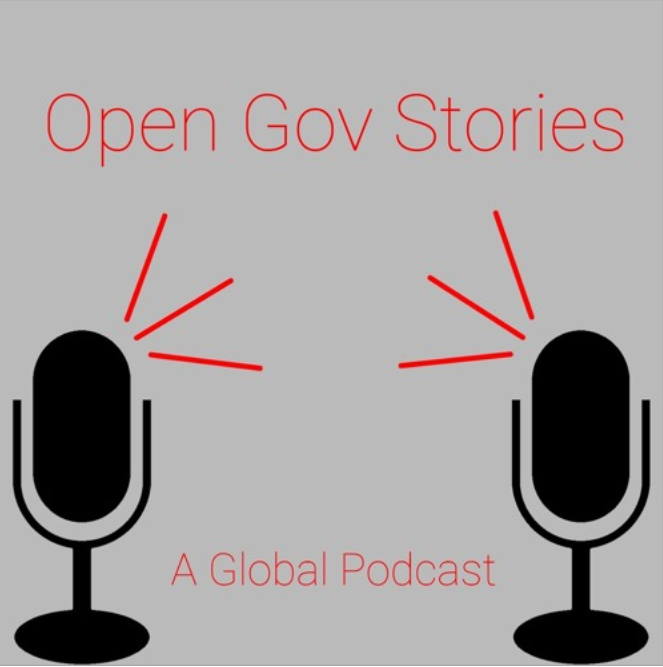
*Don’t forget to check out the Open Gov Stories Global Podcast Series with Open Gov Hub. It goes behind the scenes to explore why social changemakers do the work they do. Listen to more than 20 stories from people in the TAP field – new ones to come each month. Plus you can record and add your own.
TAI SPOTLIGHT: A new look at impact evaluation capacity in sub-Saharan Africa
A New Look at Impact Evaluation Capacity in Sub-Saharan Africa | Hewlett Foundation
Program Officer Norma Altshuler and Sarah Jane Staats published a brief based on a research conducted by the Africa Centre for Evidence. The brief highlights the study’s high-level findings and offers recommendations for leveraging—and building on—existing capacities on impact evaluation.
An App to Fight Corruption | MacArthur Foundation
MacArthur Foundation grantee, Akin Fadeyi Foundation, partnered with the Federal Road Safety Corps (FRSC) developed an app, Flag’IT, to report corruption in Nigeria. The app will enable Nigerians to report incidences of corruption quickly and securely and connect those complaints to the relevant agencies.
Global Fellowship program Launches in 2020 | Ford Foundation
Ford Foundation will be launching a new fellowship program in early 2020 to identify and connect emerging leaders who are dedicated to addressing the root causes of inequality.
Calls:
Global Integrity: Managing Director of Programs and Learning – Ongoing
Democracy Fund: Sr. Associate, Strategy & Learning – Ongoing
Offer feedback on USAID’s Digital Strategy – October 17 – November 3, 2019
Provide feedback on NRGI’s new strategy process – October 28
Racial Equity in Journalism Fund – October 30
Accountability Incubator program for young change makers – October 31, 2019
Craig Newmark Cyber Journalism Fellowship – November 1
Call for papers: Nigerian Tax Research Network Conference – November 6
TAI Student Fellowship – Spring 2020 – November 10
Small Charities Challenge Fund for UK registered NGOs and Charities – November 28
Calendar
7th SAMEA Conference: Shaping M&E for a sustainable future – October 21 – 25, 2019 (Gauteng, South Africa)
Using extractive industry data to fight inequality and strengthen accountability: Victories, lessons, future directions for Africa – October 24, 2019 (Washington DC, United States)
2019 Philanthropy Summit: Philanthropy at a Crossroads – October 29, 2019 (California, United States)
Global Perspectives 2019 – October 29 – November 1, 2019 (Addis Ababa, Ethiopia)
Global Partnership for Social Accountability – Global Partners Forum 2019 – November 19-21, 2019 (Washington DC, United States)
ODI Summit 2019 – November 12 – 2019 (London, United Kingdom)
The Story Conference – November 27 – 29, 2019 (Melbourne, Australia)
The Impacts of Civic Tech Conference (TICTeC) – March 24 – 25, 2020 (Reykjavik, Iceland)
Transparency International: 19th International Anti-Corruption Conference – June 2 – 5, 2020 (Seoul, South Korea)
Women and Girls Africa Summit – June 9-12, 2020 (Durban, South Africa)
